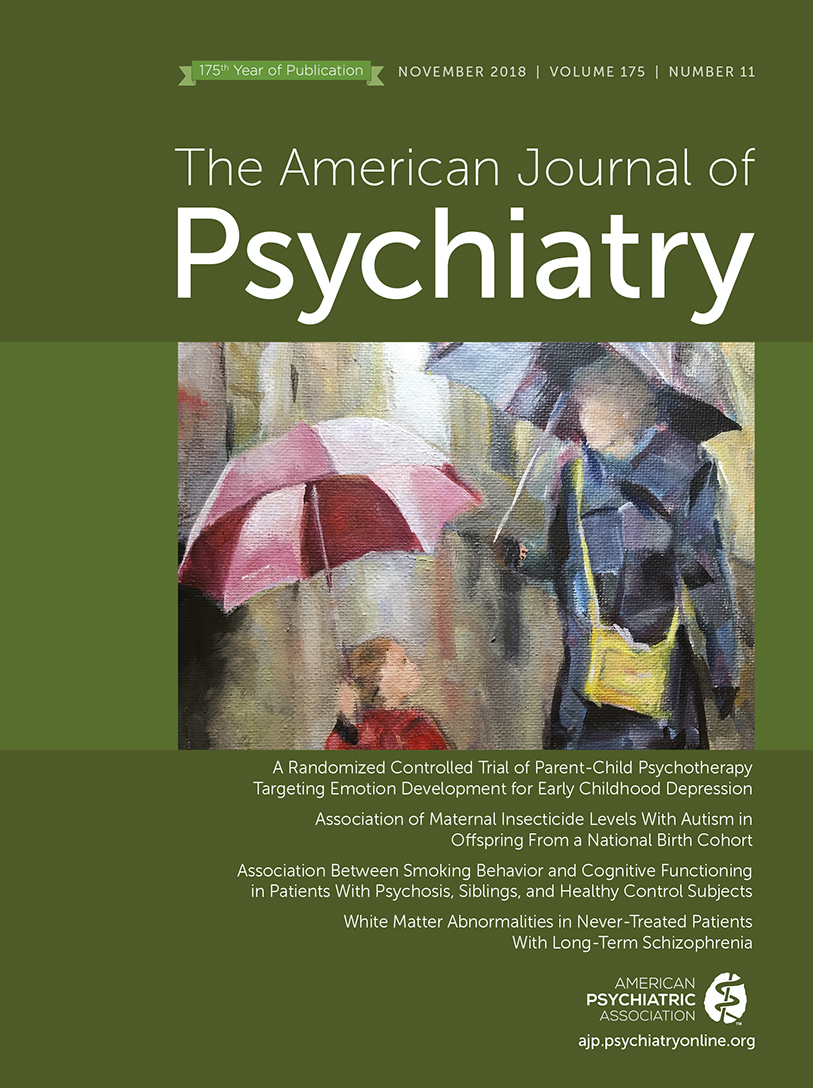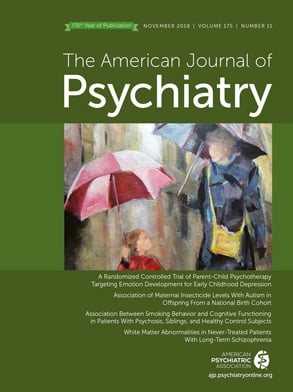T
o the E
ditor: We applaud Dr. Brunet’s team for continuing research on the potential role of propranolol in the treatment of posttraumatic stress disorder (PTSD) (
1), and we similarly applaud Dr. Friedman for his thoughtful editorial on memory reconsolidation, which appears to be the unique mechanism of propranolol (distinct from other adrenergic agents, such as prazosin) (
2). (The article and editorial were published in the May 2018 issue of the
Journal.) We agree that the memory reconsolidation paradigm holds great promise for advancing the field beyond current evidence-based mainstays of treatment derived largely from extinction learning or cognitive-behavioral mechanisms.
We would like to highlight that, in addition to efforts to produce healthy reconsolidation through medications, a growing number of psychotherapy techniques also need to be considered in the emerging field of “memory therapeutics.” Some examples include accelerated resolution therapy (
3), reconsolidation of traumatic memories (or the “rewind” technique) (
4), and cognitive restructuring and imagery modification (
5). These therapies involve facilitating a novel experience (or expectation mismatch) within the reconsolidation window, permitting the memory to be reconsolidated with a new emotional valence. Examples of such facilitation include helping the patient feel unexpectedly fewer distressing sensations upon memory activation, achieve a novel perspective, rescript a different ending, or transform the trauma-associated imprint using metaphors. For example, accelerated resolution therapy, which is a direct adaptation of eye movement desensitization and reprocessing, uses visualization facilitated by eye movements to activate a traumatic memory, process associated somatic sensations, and rescript the memory within the brief reconsolidation window (of an hour-long psychotherapy session), during which the memory is labile and vulnerable to change (
3).
Like Brunet et al.’s propranolol-assisted therapy, reconsolidation-focused psychotherapies also appear to be more efficient than traditional evidence-based psychotherapies, although well-controlled randomized trials are needed to validate initial evidence that efficacy can be achieved in PTSD treatment in as few as one to five treatment sessions (
3–
5). A recent meta-analysis of rescripting techniques also suggests that the reconsolidation paradigm will advance the treatment of other psychiatric conditions, as well as PTSD. Two-thirds of the 19 trials of psychotherapies that used rescripting procedures demonstrated significant improvement in three or fewer sessions (
6). Clearly, more efficient therapies based on the reconsolidation framework would represent a huge innovation in the treatment of PTSD and other psychiatric disorders.

